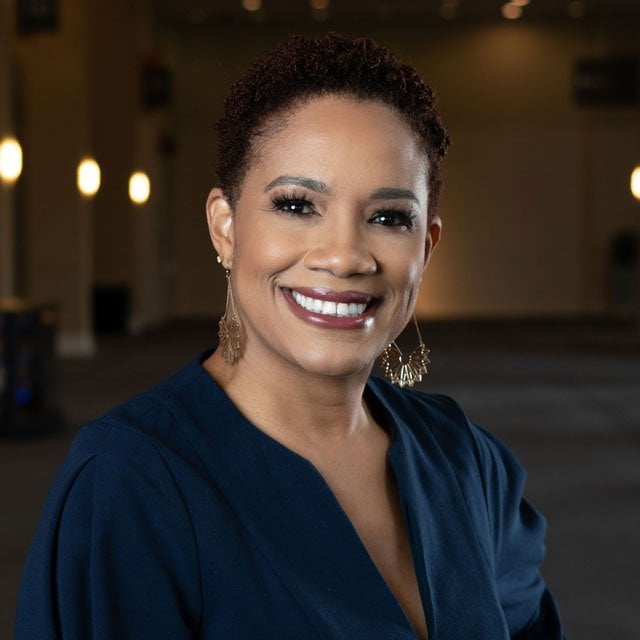What Big Firms Still Aren't Getting About Diversity: Lazetta Rainey Braxton

The United States population will be increasingly more racially and ethnically diverse in the coming decades, with the growth of white Americans declining, and people of more than one racial heritage the fastest-growing group, the U.S. Census Bureau projects.
“Are you as a white financial advisor prepared to navigate client situations [concerning diversity] — biracial combined families, for instance?” Lazetta Rainey Braxton, a prominent advocate for diversity, equity and inclusion at large wealth management firms, asks in an interview with ThinkAdvisor.
Braxton is co-founder and co-CEO of 2050 Wealth Partners and CEO of Lazetta & Associates, a consulting firm providing diversity, equity and inclusion strategies to wirehouses and large RIAs.
The CFP, named a 2021 Crain’s New York Business Notable Black Leader and Executive, is an outspoken voice calling for equitable treatment and advancement for Black people at large employee financial advisory firms.
While she cheers the fact that 2022 saw 114 new African American CFP holders — an 8.8% increase — for a total of 1,766 Black CFP professionals, according to the Certified Financial Planner Board of Standards, “there are cultural challenges [at firms] that make us feel as though we’re not welcome even with all the skill sets we bring,” Braxton says in the interview. “There’s still a lack of hospitality.”
That’s why she applauds RIAs who have added a “B” for “belonging” to the diversity, equity and inclusion abbreviation, making it DEIB.
“Oftentimes, African Americans don’t feel like they’re even recognized” at the firms, she maintains.
Previously, Braxton, who earned a master’s degree in finance from the Wake Forest University school of business, helmed Financial Fountains, a firm she founded and ran for 11 years.
In 2020, she merged with Your Greatest Contribution, a practice founded by advisor Rianka R. Dorsainvil.
Their 2050 Wealth Partners now offers a team of four CFPs and charges clients an annual retainer starting at $5,500 for individuals and $8,500 for couples.
Their client niche? Everyone who isn’t part of “the 1%,” Braxton says. As much as 85% to 90% of its client roster has never before worked with a financial planner.
In the interview, Braxton laments the trend that, on the advisor side of the equation, many Black advisors break away from large firms to open solo practices because “the industry still [isn’t] hospitable to us. There’s still resistance,” she argues.
Going solo means less income than compensation as a firm employee, she stresses.
A popular keynote speaker and coach, Braxton started out as an auditor at Marriott, then moved into financial services.
She resigned from her last job — vice president at an investment management firm — when a white prospect used a disparaging term about African Americans, yet the firm ignored the slur and took him on as a client anyway.
ThinkAdvisor recently interviewed Braxton, a member of the CNBC Digital Financial Advisory Council and a contributor to The Wall Street Journal’s Experts blog.
Speaking by phone from her Base in Brooklyn, New York, the Black leader says candidly:
“I have a problem with firms who are looking to increase their number of [African American financial advisors] without having the hospitable culture in place to receive and nurture diverse talent.”
Here are highlights of our conversation:
THINKADVISOR: Firms talk about the need for diversity, equity and inclusion. But are they actually embracing DEI?
LAZETTA RAINEY BRAXTON: The large RIAs I’m working with [as a consultant] are saying they’re interested in DEIB. The “B” stands for “belonging” since diversity, equity and inclusion should lead to belonging.
You want an employee to feel like they belong at the organization because they bring diversity, feel included and are paid and treated equitably.
But oftentimes, African Americans don’t feel like they’re even recognized.
Please explain.
I have a problem with firms who are looking to increase their number of [African Americans] without having the hospitable culture in place to receive and nurture diverse talent.
We have representation by numbers. The question is: Are our voices being included in the conversation at the table? Is pay equitable?
[At the same time], billion-dollar RIAs are at the stage of saying that this is a business strategy and very critical to succession planning because of changing demographics.
Which changes are you referring to?
We know that by the year 2050, the U.S. will be a racial mosaic, and that will embrace both talent and clients. Each generation has become more diverse than the one before it.
You need to be prepared for this change, like any other long-term investing.
Are you, as a white financial advisor, prepared to navigate client situations [concerning diversity] — biracial combined families, for instance?
Most firms don’t have the cultural competencies to have conversations with people of color to understand, for example, the perspective that Meghan [Duchess of Sussex, Prince Harry’s wife] has.
What do you feel frustrated about most when it comes to Black advisors?
My biggest frustration is that many of my colleagues end up going independent and starting their own solo firms.
Even when you get the CFP designation — which the biggest firms are finally seeing as a crucial component of the work and credibility — it doesn’t always equate to promotions.
It hasn’t changed the dynamic of how a lot of African Americans are viewed on the spectrum in terms of being a minority at these firms.
Broadly, where do Black advisors stand, then?






